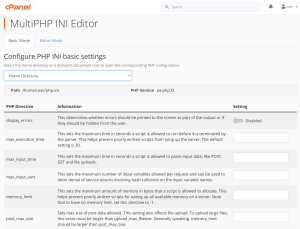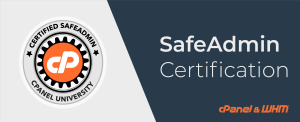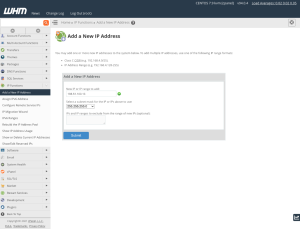
We’ve all had to ask for help at some point, usually when we are ready to have a moment like the crew in the movie “Office Space” going to town on that jammed printer. Then, when we have to submit a support ticket, it can be frustrating to explain everything and go back and forth with questions and answers before the support team is able to start problem solving and help you.
Knowing what the support team needs in order to help you fast will speed up the process and help get your issue resolved as efficiently as possible. In this article, we’ll teach you how to build an excellent support ticket that can improve the level of help you receive and your resolution speed.
Table of Contents
- 1 What to do before you open your ticket
- 2 Crafting a robust support ticket provides System Administrators the information needed to assist you better
- 3 What is a support ticket?
- 4 What makes a great support ticket?
- 5 What information do I need to submit my ticket?
- 6 Preparing ahead of time will get you the best support
What to do before you open your ticket
Before submitting a ticket, researching and attempting to resolve the issue on your own can be beneficial for a couple of reasons, and may save you more time in the long run. You may be able to fix the problem without any outside help, and you can speed up the troubleshooting process by documenting steps you have already tried and what worked and didn’t work in your support ticket.
This article will help you prepare a support ticket, what information is needed, and how to craft the best possible questions to receive better support. We have many resources available to help. Here’s a list of links to explore:
- cPanel & WHM Documentation
- cPanelTV Tutorial Videos
- cPanel Support Forums
- cPanel Reddit Forums
- cPanel Community Discord
- cPanel Support User Resources
- cPanel & WHM Feature Requests
Exploring self-help options often speeds up the time it would take to resolve the issue. Even if you can’t fix the problem yourself, being prepared with the solutions you’ve already tried helps to eliminate the back-and-forth time it takes to troubleshoot.
Crafting a robust support ticket provides System Administrators the information needed to assist you better
Systems inevitably break down and require administrator intervention. Creating an informative support ticket provides sysadmins with the necessary information to resolve your issue more quickly and completely.
What is a support ticket?
A support ticket is a task for qualified system administrators to review. When you open a support ticket, a sysadmin on our support team will diagnose and troubleshoot the issue as your request moves into the ticket system, prioritizing tickets in a first-in-first-out queue of support requests. Some tickets are granted priority status based on different factors. These include the type of account, whether you are a cPanel Partner, or paid for priority support. Our ticketing system is divided into different queues, so specialized analysts can use their knowledge to assist you based on whether your request is related to migrations, billing, customer service, or general technical support.
What makes a great support ticket?
Our ticketing system will prompt you to enter information when you create your ticket. We have specific documentation about how to open a technical support ticket that goes over step-by-step how to create this ticket. Still, we include an overview in this article as well.
What information do I need to submit my ticket?
- Your email address associated with your cPanel account. Also known as your Support Access ID.
- It’s important to use the same email address as your cPanel account, so your ticket will be automatically sorted into the correct queue.
- Your server’s IP address, and possibly the Hostname.
- If you don’t know how to find this information, the ticket system provides a tooltip to show you how to find it.
- Your contact information.
- It will ask for your full name, company name, and contact phone number.
- A subject line for the ticket.
- Briefly explain what the issue is in clear terms, so the technician knows at a glance what kind of problem you’re facing.
- The issue description.
- Provide the details about your issue, including any error messages. If possible, copy and paste the error message to provide context, as error messages sometimes include the file path where the problem lies.
- Steps to replicate the issue.
- Here’s where you’ll describe what happened before (including any system changes such as adding a component, removing a component, changing a user, etc.) and after you started experiencing your issue
- Include any solutions you may have already tried using the documentation and links above.
- Server Details.
- It is usually necessary to provide access to the server to the system administrators on the support team so they can log in and see for themselves what the issue is. You can grant them access within the ticket system by authenticating your server for technical support or providing the details here.
- It will ask for the server name, login IP and port for SSH access, and the username for SSH access, plus it will allow you to upload the SSH key for the server on this interface. There is also a box to provide additional information, including Server Notes, or to Refuse Access to Server if you do not want the support analyst to log in to your server.
- Prepare servers for cPanel support.
- This screen provides a push-button method for preparing your server for support to access it. It will guide you through the process.
- You’re finished creating your support request, but may have to complete additional steps, depending on your server software version. This final screen will direct you if that’s necessary.
Preparing ahead of time will get you the best support
The best thing you can do to help speed up your process for getting support is to provide the right information from the start. Preparing your support ticket is like a shortcut to make sure you eliminate the time-consuming multiple reply cycle that sometimes happens when information is missing from the ticket in the beginning. We hope this guide will help you to resolve any issues you experience quickly. Are you ready to open a ticket?
As always, we’re looking for your feedback! Find us on the cPanel community channels for Reddit, Discord, and the Forums and follow us on Twitter, Facebook, Instagram, and LinkedIn for updates about what’s new!

















